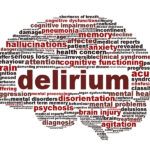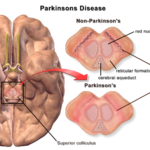Dementia is a collective term for a range of neurological disorders characterized by a decline in cognitive function, affecting memory, thinking, behavior, and the ability to perform everyday activities. It is not a single disease but a syndrome resulting from various underlying conditions.

Types of Dementia
- Alzheimer’s Disease: The most prevalent form, accounting for 60-80% of cases. It is marked by amyloid plaques and tau tangles in the brain, leading to progressive memory loss and cognitive decline.
- Vascular Dementia: The second most common type, resulting from impaired blood flow to the brain, often after a stroke. Symptoms include difficulties with problem-solving, slowed thinking, and focus.
- Lewy Body Dementia: Characterized by abnormal protein deposits called Lewy bodies in brain cells. It presents with symptoms such as visual hallucinations, movement disorders, and fluctuating cognitive abilities.
- Frontotemporal Dementia: Involves degeneration of nerve cells in the frontal and temporal lobes of the brain, affecting personality, behavior, and language.
- Mixed Dementia: A condition where abnormalities characteristic of more than one type of dementia occur simultaneously in the brain.
Symptoms
Dementia manifests through a variety of symptoms, which may include:
- Memory Loss: Particularly affecting short-term memory, leading to repeated questions and forgetting recent events.
- Cognitive Impairment: Challenges with planning, problem-solving, and executing familiar tasks.
- Language Difficulties: Struggling to find the right words, following conversations, or understanding language.
- Disorientation: Becoming lost in familiar places and confusion about time or place.
- Mood and Behavior Changes: Experiencing unexplained anxiety, depression, agitation, or personality shifts.
Causes and Risk Factors
Dementia arises from damage to brain cells, which impairs their ability to communicate. This damage can result from various diseases and conditions, including:
- Neurodegenerative Diseases: Such as Alzheimer’s, Parkinson’s, and Huntington’s diseases.
- Vascular Disorders: Conditions that affect blood circulation to the brain.
- Infections: Including HIV and Creutzfeldt-Jakob disease.
- Traumatic Brain Injury: Injuries resulting from severe head trauma.
Risk factors encompass age (with increased risk after 65), family history, cardiovascular health, diabetes, smoking, and lifestyle factors.
Diagnosis
Diagnosing dementia involves a comprehensive assessment, including:
- Medical History: Reviewing personal and family medical backgrounds.
- Physical Examination: Assessing overall health and identifying potential causes of symptoms.
- Neurological Tests: Evaluating cognitive functions, reflexes, and sensory responses.
- Imaging Studies: Utilizing MRI or CT scans to detect brain changes.
- Laboratory Tests: Identifying underlying conditions contributing to symptoms.
Treatment and Management
While there is no cure for most types of dementia, various strategies can help manage symptoms:
- Medications: Cholinesterase inhibitors and memantine may alleviate cognitive symptoms.
- Therapies: Cognitive stimulation, occupational therapy, and psychotherapy can support cognitive function and mental health.
- Lifestyle Modifications: Regular physical activity, a balanced diet, mental engagement, and social interaction are beneficial.
Prevention
While not all cases are preventable, certain measures may reduce the risk:
- Cardiovascular Health: Managing blood pressure, cholesterol, and diabetes.
- Healthy Lifestyle: Engaging in regular exercise, maintaining a nutritious diet, and avoiding smoking and excessive alcohol consumption.
- Mental and Social Engagement: Participating in intellectually stimulating activities and maintaining social connections.

